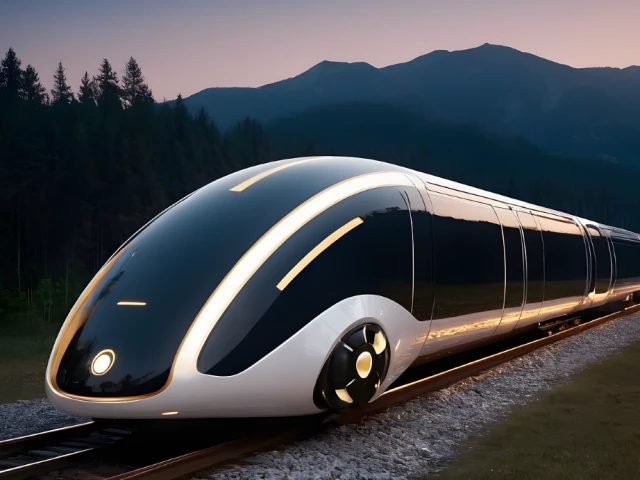Developer Offer
Try ImaginePro API with 50 Free Credits
Build and ship AI-powered visuals with Midjourney, Flux, and more — free credits refresh every month.
Pakistan Announces Ambitious High Speed Rail Project
A Vision for High-Speed Connectivity
Pakistan Railways has officially unveiled an ambitious plan to construct a high-speed bullet train line connecting the nation's two largest cities, Karachi and Lahore. Heralded by Railways Minister Hanif Abbasi as a "visionary plan," the project aims to revolutionize travel by drastically cutting the journey time from the current 20 hours to a mere five hours by 2030.

The proposed 1,215-kilometer line will see trains operating at speeds up to 250 km/h, with key stops planned in major cities such as Hyderabad, Multan, and Sahiwal, integrating crucial economic and population centers.
The Economic Engine of ML-1
This high-speed rail initiative is a cornerstone of the larger $6.8 billion Main Line-1 (ML-1) upgrade, a flagship project under the China-Pakistan Economic Corridor (CPEC). Minister Abbasi highlighted the critical role of Chinese technical expertise in this venture, stating, “With Chinese technical backing—including China Railway Construction Corporation—we’re reinforcing the backbone of this nation.”
The upgrades extend beyond just speed. The project scope includes the development of double-track lines, the reconstruction of bridges, and the implementation of modern signalling systems to ensure safety and efficiency.
The economic implications are vast. The initiative is expected to generate thousands of employment opportunities, stimulate regional trade, and significantly boost Pakistan's rail freight share from a modest 4% to an impressive 20% by 2030. Furthermore, officials anticipate that shifting freight from roads to rail will lead to substantial savings in fuel import costs.
Expanding Pakistan's Rail Network
This project is part of a broader push to modernize Pakistan's railway infrastructure. Earlier this year, Punjab Chief Minister Maryam Nawaz Sharif approved a separate bullet train project to connect Lahore and Rawalpindi, which promises to reduce travel time between the two cities to just 2.5 hours.
In another significant development, funding challenges for a related project are being addressed. The Asian Development Bank (ADB) is set to provide backing for a $2 billion upgrade of the 500-km Karachi–Rohri rail corridor, a segment crucial for transporting copper ore from the Reko Diq mine. An ADB-led consortium is expected to finalize the agreement soon.
Modernizing for the Future
In parallel with these large-scale infrastructure projects, Pakistan Railways is implementing a comprehensive digitization and automation program across its network. Key upgrades include the installation of computerized interlocking systems at major junctions, the adoption of a digital microwave radio system along the primary Karachi–Lahore route, and the deployment of advanced digital communication networks to enhance operational safety and coordination.
Compare Plans & Pricing
Find the plan that matches your workload and unlock full access to ImaginePro.
| Plan | Price | Highlights |
|---|---|---|
| Standard | $8 / month |
|
| Premium | $20 / month |
|
Need custom terms? Talk to us to tailor credits, rate limits, or deployment options.
View All Pricing Details

